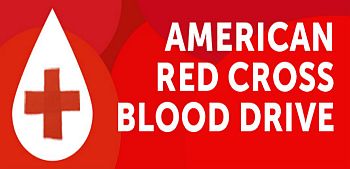 As the American Red Cross responds to wildfires and historic hurricanes, eligible donors are reminded that giving blood during National Preparedness Month in September is one way to help ensure the Red Cross is prepared to respond to patient emergencies across the country every day.
As the American Red Cross responds to wildfires and historic hurricanes, eligible donors are reminded that giving blood during National Preparedness Month in September is one way to help ensure the Red Cross is prepared to respond to patient emergencies across the country every day.
Hurricane Irma has forced the cancellation of dozens of Red Cross blood drives in the Southeast, resulting in more than 2,100 uncollected blood and platelet donations. Natural disasters like hurricanes can disrupt blood drives and prevent donors from giving, but hospital patients still depend on lifesaving transfusions. Volunteer blood donors are the only source for blood products needed by hospital patients.
Individuals in parts of the country unaffected by Hurricane Irma are encouraged to give blood to help ensure a sufficient blood supply. All blood types are currently needed. Appointments can be made by using the Blood Donor App, visiting redcrossblood.org or calling 1-800-RED CROSS.To help reduce wait times, donors are encouraged to make appointments and use RapidPass® to complete their pre-donation reading and health history questions online, on the day of their donation, from a computer or mobile device at redcrossblood.org/rapidpass.
Upcoming blood donation opportunities inMarshall County are Thursday, September 28th from 1 till 5 p.m. at Michiana Behavioral Health at 1800 North Oak Road; October 2nd at the Triton High School in Bourbon from 8:30 a.m. until 1:30 p.m.; October 5th at the Knights of Columbus at 901 East Jefferson Street in Plymouth from 11:30 a.m. until 5:30 p.m. and on October 11th at Menominee Elementary School at 815 Discovery Lane in Plymouth.
How to donate blood
Simply download the American Red Cross Blood Donor App, visit redcrossblood.org or call 1-800-RED CROSS (1-800-733-2767) to make an appointment or for more information. All blood types are needed to ensure a reliable supply for patients. A blood donor card or driver’s license or two other forms of identification are required at check-in. Individuals who are 17 years of age in most states (16 with parental consent where allowed by state law), weigh at least 110 pounds and are in generally good health may be eligible to donate blood. High school students and other donors 18 years of age and younger also have to meet certain height and weight requirements.














